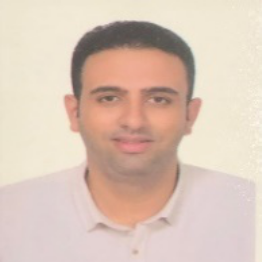
Mohamed Gaber
Work place: Computer Science Department, Faculty of Computers and Information, Menoufia University, Shebin Elkom 32511, Egypt
E-mail: m.gmalhat@yahoo.com
Website:
Research Interests: Software Engineering, Computer systems and computational processes, Computational Learning Theory, Distributed Computing, Data Mining, Data Structures and Algorithms
Biography
Mohammed G. Malhat received his B.Sc., M.Sc., and PhD in Computer Science from Menoufia University, Faculty of Computers, and Information in 2010, 2014, and 2019, respectively. His research interest includes Distributed Systems, Data Mining, Machine Learning, Data Privacy, and Security, Cloud Computing, intelligent agent, Software engineering.
Author Articles
Heart Disease Prediction Using Modified Version of LeNet-5 Model
By Shaimaa Mahmoud Mohamed Gaber Gamal Farouk Arabi Keshk
DOI: https://doi.org/10.5815/ijisa.2022.06.01, Pub. Date: 8 Dec. 2022
Particularly compared to other diseases, heart disease (HD) claims the lives of the greatest number of people worldwide. Many priceless lives can be saved with the help of early and effective disease identification. Medical tests, an electrocardiogram (ECG) signal, heart sounds, computed tomography (CT) images, etc. can all be used to identify HD. Of all sorts, HD signal recognition from ECG signals is crucial. The ECG samples from the participants were taken into consideration as the necessary inputs for the HD detection model in this study. Many researchers analyzed the risk factors of heart disease and used machine learning or deep learning techniques for the early detection of heart patients. In this paper, we propose a modified version of the LeNet-5 model to be used as a transfer model for cardiovascular disease patients. The modified version is compared to the standard version using four evaluation metrics: accuracy, precision, recall, and F1-score. The achieved results indicated that when the LeNet-5 model was modified by increasing the number of used filters, this increased the model's ability to handle the ECGs dataset and extract the most important features from it. The results also showed that the modified version of the LeNet-5 model based on the ECGs image dataset improved accuracy by 9.14 percentage points compared to the standard LeNet-5 model.
[...] Read more.Other Articles
Subscribe to receive issue release notifications and newsletters from MECS Press journals